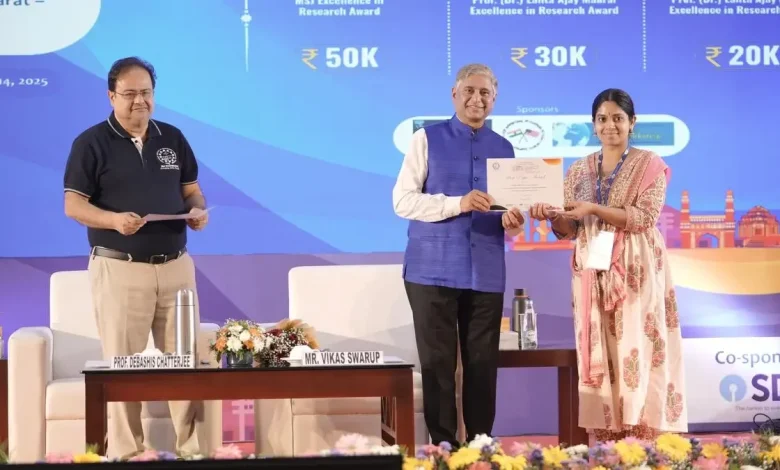‘India to transform healthcare access for billions’

L-R- Debashis Chatterjee, director,IIMK, Ambassador Vikas Swarup, author and former diplomat, Priyankari-Best paper award at the concluding session of Globalizing Indian Thought (GIT) Conclave 2025 at IIM Kozhikode.
India is poised to transform healthcare access for billions with largest expansion of medical seats, a dominant position in global pharmaceuticals, and rapid advances in AI- powered diagnostics.
Devi Prasad Shetty, Founder & Chairperson, Narayana Health said that the country will show the world how quality healthcare can be made affordable at scale when hospitals, insurers and patients finally align through innovative models.
He was speaking at the concluding session of Globalizing Indian Thought (GIT) Conclave 2025 at IIM Kozhikode.
“India is the pharmacy of the world and is going to redefine how healthcare is delivered across the globe. The country is a pioneer in ultra–low-cost care models driven by entrepreneurial doctors and paramedics,” he said.
Vikas Swarup, author and former diplomat, reflected on India’s rising global stature and its role in a rapidly evolving world order. He highlighted India as one of the world’s largest technology markets, with a massive user base shaping global tech trends. From UPI’s digital payments revolution to rapid delivery innovations, he noted how the country is emerging as a hub of scale, speed, and ingenuity. He also stressed that increasing female workforce participation from the current 43 per cent could significantly boost the GDP by 3–4 percentage points.
Debashis Chatterjee, Director IIM Kozhikode and Chair GIT 2025 said the conclave underlined that Viksit Bharat @2047 will be driven not just by economic progress, but by innovation, inclusive growth, and a renewed sense of gobal responsibility.
Erik Solheim, Former Executive Director of the UN Environment Programme praised India’s strong leadership in advancing a bold green agenda for Viksit Bharat @2047. Citing examples from several Indian states, he highlighted progress in climate resilience, clean technologies, and sustainable innovation supported by Indian businesses.
In an expert interaction Peeja Rajan, State Coordinator, UN Women India said “Women must not just be beneficiaries of urban design; they must be co-creators of urban futures,” She underscored the need for community convergence, safer public spaces, and stronger inclusive policies.
Published on November 14, 2025





